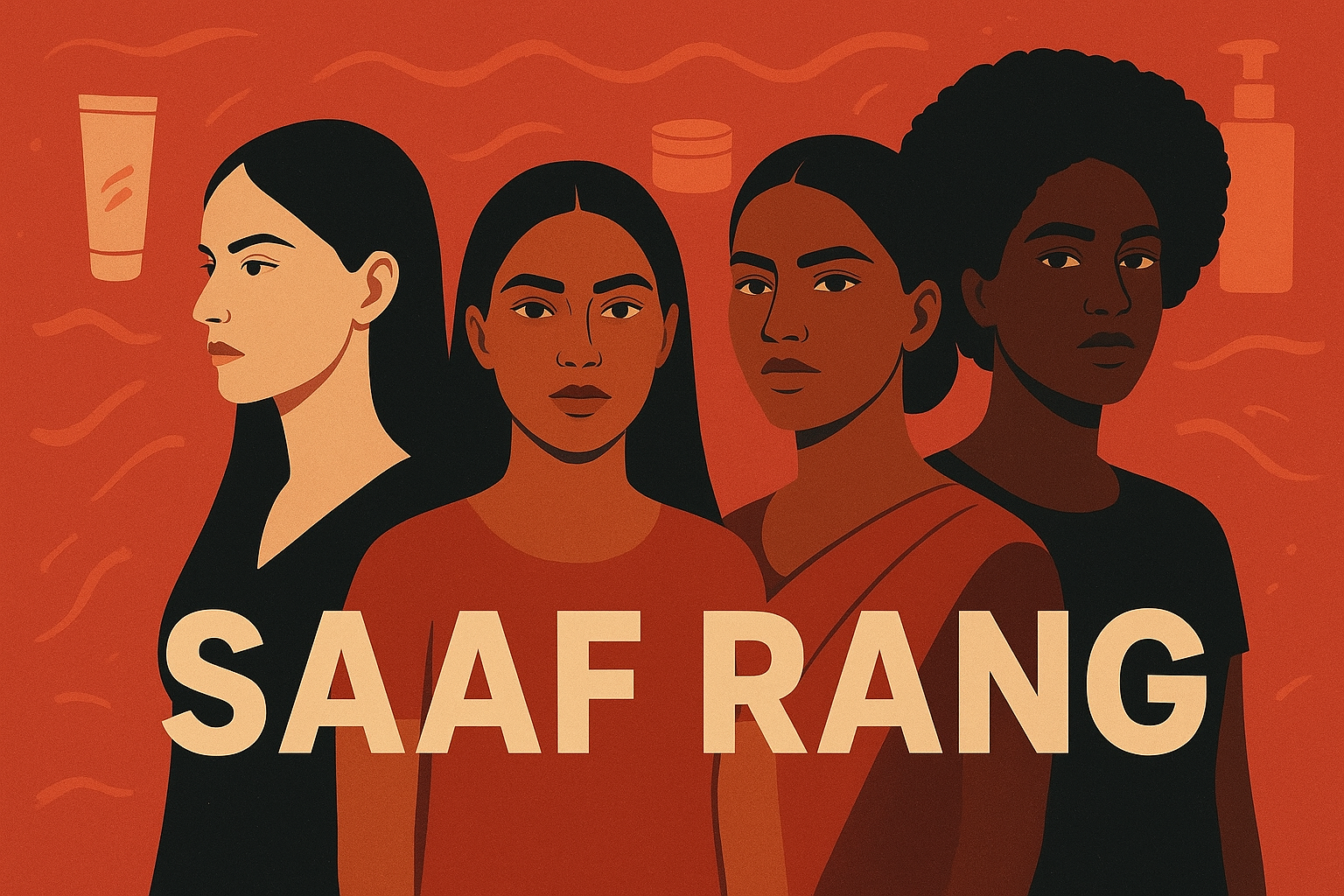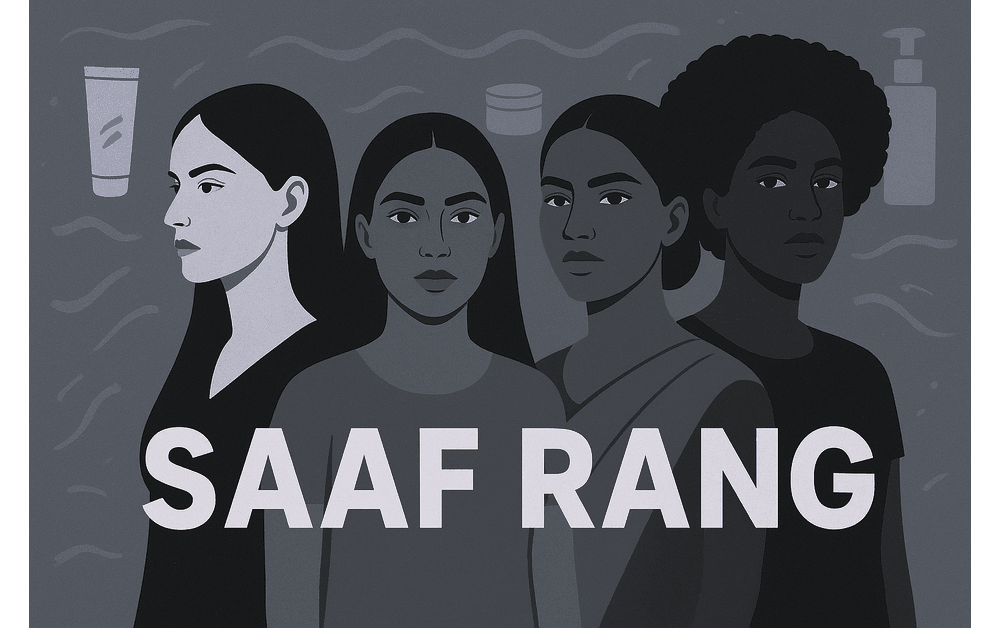
In South Asia, the lighter your skin, the higher your worth. It’s not just preference, it’s madness disguised as culture. From the moment you enter the world, your complexion becomes public property. Aunties, uncles, random neighbours, everyone suddenly turns into a colour critic. “Acha rang hai,” they will say if you’re fair. If you’re not, they’ll tell your mother to try “ubtan,” or “haldi,” or some homemade recipe to “improve the colour.” Improve. As if your skin tone is a problem that needs fixing.
And the language we use says everything. When someone is fair, we say saaf rang, clean colour. Clean. Let that sink in. As if darker skin is dirty. The rot is so deep that we’ve linked fairness with purity and darkness with shame. We’re bleaching our self-worth, literally and figuratively.
It doesn’t just stop at talk. It seeps into our shelves and bathrooms, entire industries built on insecurity. Bleaching creams, whitening soaps, skin “lightening” facials, all selling the same poisonous promise: fairness equals beauty. Never mind that these creams are loaded with mercury, hydroquinone, and steroids that damage your skin, your hormones, your health. We’ll risk rashes, burns, and permanent damage just to look a few shades lighter. All to meet a standard that was never ours to begin with.
And it’s not just adults. Even children aren’t spared. You’ll hear aunties whispering, “Pyara hai but thoda sa dark hai,” or “Maybe she’ll get lighter when she grows up.” We are teaching kids to hate their reflection before they even know what self-love means. Imagine the psychological damage of growing up believing your skin tone is something to apologise for.
Yes, the obsession has roots. Colonial rule planted the idea that white equals superior, and that mindset took deep hold. But let’s be clear, centuries later, this is still a choice. We could teach children that their natural skin is beautiful, that talent, kindness, and intelligence matter far more than shade. Instead, we keep the cycle alive, praising fairness and quietly shaming darkness.
Colorism isn’t vanity. It’s violence, a slow, psychological one that corrodes confidence and warps identity. We’ve let a ridiculous obsession dictate how we treat each other, how we raise our children, and how we see ourselves. So the next time someone says “saaf rang hai,” maybe ask them, saaf from what? Because the only thing that’s truly filthy here is the mindset that makes brown people hate being brown.
Stop pretending that fairness is neutral. Stop telling children that lighter is better. And start questioning why, in 2025, we’re still obsessed with clean skin while forgetting that human beings come in every shade, and every single one is enough.


Leave a Reply